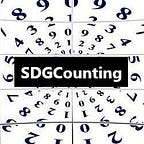Innovations in Data from the #UNDataForum: Big Data
With the ending of the first UN World Data Forum, new innovations in sustainable development data are being launched.
Innovations in data were specifically referenced in Strategic Area 2 of the Cape Town Global Action Plan for Sustainable Development Data: ‘innovation and modernization of national statistical systems’. The subjects of data innovation and new trends in data were highly present at the UN World Data Forum, covering an array of topics from data collection to new partnerships to data visualization tools. Here is our list of resources for new data innovations in Big Data that were presented at the UN World Data Forum. While this by no means a complete list of every big data innovation discussed at the Forum, it is a starting place.
The UN Global Pulse
It is no wonder that Big Data was one of the main Forum conversation pieces when it came to new sources and collection methods of sustainable development data. Big data is characterized as data that is created from everyday life constantly, for example: social media data, data from mobile phones, etc. The UN Global Pulse is the UN initiative dedicated to big data, and works to unsure that big data is “harnessed safely and responsibly as a public good.” Their presence touched many of the World Data Forum panels dealing with innovations in big data.
LIRNEasia
LIRNEasia is a think tank active across Asia Pacific showcasing research and knowledge to educate the public (and policy makers) on big data and its usefulness for informing policy in various domains.
OPAL
While OPAL will be a provider of algorithms and methods of analytics, its main purpose centers around mobile data from telecom operators. It is a clear example of the the opportunities and challenges discussed during the World Data Forum session ‘Big Data Innovations’: OPAL stresses partnership, privacy, and big data for the public good. While still in a pilot phase, we look forward to seeing how a partnership like OPAL will lend itself to counting for the SDGs.
WorldPop
In the World Data Forum session ‘The Future of Data Production’, WorldPop was among one of the innovations discussed. WorldPop uses multiple sources of data, including big data; WorldPop uses mobile phone call data records in countries to map population densities across real time.
